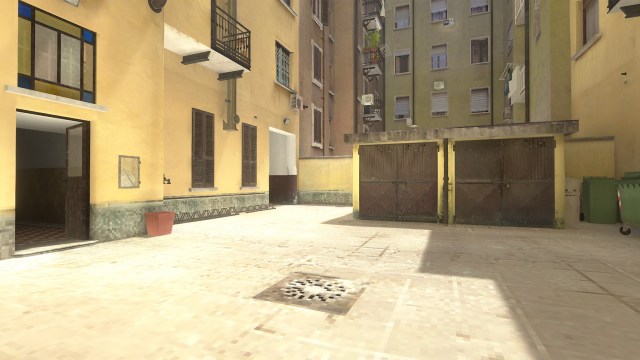LifeisXbox’s ‘Promesa’ review | Between sleep and a constant waking state in which associations and memories reside, Promesa offers us a contemplative journey through our memories. The world we travel through, one that sounds familiar to us, is not at all one to rejoice, but to see life with different eyes, inhabiting stories, knowledge acquired in the course of a lifetime. It’s a world in which we are merely passive spectators, a simple presence, not builders, in order to collect some of the most significant moments. Many times the world of video games surprises us with titles that want to be part of this art and it’s something that Julian Palacios and Fantastico Studio were able to achieve in Promesa.
We played Promesa for about 2 hours on Xbox Series X. This game is also available on Nintendo Switch, PlayStation 4, Xbox One & Microsoft Windows

What we liked!
- A video game that represents art | Art, like all non-verbal expressions, is a way of expressing our emotions. It’s not just about achieving excellence through exquisite technique, but rather about channeling those feelings and working on them. Promesa is fundamentally based on the universality of this language thanks to the good work of Julián Palacios, an artist who uses 3D space to create audiovisual narrative experiences. In this case, through an explosion of colors that favor all kinds of sensations and that also make us perceive order or disorder.
- A game that conveys feelings | This work takes us from one place to another, projecting several images at the same time that are protected by artistic realism, since it represents situations and objects of everyday life in a plausible way. However, as we get closer we see that all those environments treated from a conventional and traditional perspective, respond a posteriori with certain reactive artistic movements against this kind of realistic painting, reinforcing its commitment to a peculiar pixelated aesthetic for the textures of the materials. and the definition of environments. It’s an ingenious combination of perspectives, as well as a use of the ambiguity of depth, that reveal the talent of it’s creator.
- An ingenious contemplative experience | The term walking simulator has always been used in a derogatory way. Because when you play these games, you not only walk, but you also take a trip inside yourself. Promesa is that taken to it’s maximum expression, a contemplative experience in which we will do nothing more than move very slowly, perhaps too much, without being able to interact with any element of the scenarios. We simply get carried away by a tide in which we are mere spectators of a journey as a metaphor for life. In spite of everything, this journey is still charged with an aura of ambiguity that our character brings with him at all times and that embraces abstract forms.
- Promesa represents a sense | Promesa represents that bridge that links the past with the present with the help of various visual metaphors. Yes, it’s a work in which the narrative and narrative discourse are mixed in a diffuse whole, as part of a metalanguage. Therefore, it’s sometimes a bit confusing to deduce from the heterogeneity of these elements with everything that it claims to convey. Even so, he knows how to introduce us into his atmosphere, one where playing means remembering life, not as what one has lived, but what one remembers and how one remembers it to tell it.
- The game is not linear | Promesa itself tells us at the end of the first “playtrough”, that not all sequences are glimpsed in a first contact and that each session is different from the previous one. In other words, dedicating more time to Julián Palacios’ work means above all obtaining clarity and making more sense of what we are experiencing.

Somewhere between
- A duration according to the game | Promesa is an adventure that can be completed in less than 40 minutes and, although the work in question forces us to go slowly through all it’s settings to observe them carefully, it takes us from one place to another quickly and constantly, but not in a specific order. After all, it’s said that the brain has a finite number of neurons and that, over time, it can edit our memories to create false memories or archive memories, at the same time that they follow an inaccurate order. Where do you want to go?

What we disliked
- The game happens very slowly | Taking into account that the game is classified as a “Walking Simulator”, the only problem I find in Promesa is that the speed at which our character moves is very slow. Obviously it’s designed so that we enjoy the game more and pay more attention to what happens in it. In the options menu, we can add a little speed to our character, however, the movement speed is still very slow.
How long to beat the story | 40-60 Minutes
How long to achieve 1000G | 1-1.5 Hours
Similar with | Dear Esther: Landmark Edition
CONCLUSION
LifeisXbox.eu is the largest Belgian Xbox centered website, your reading time is greatly appreciated! Please consider sharing this review with your friends on social media, that means a lot for us! If you are Dutch speaking also consider joining our Dutch exclusive Facebook group Xbox Gamers Belgium. Feel free to use quotes for PR purposes.

Founder | Editor-in-chief | Social Media Manager
Gaming is a passion and I wanted to share my Xbox enthusiasm. That’s why I started LifeisXbox, to make sure gamers all around the world know what games they should buy or avoid. I would like to thank you for visiting my website. Your support is very welcome and I hope you stick around!





